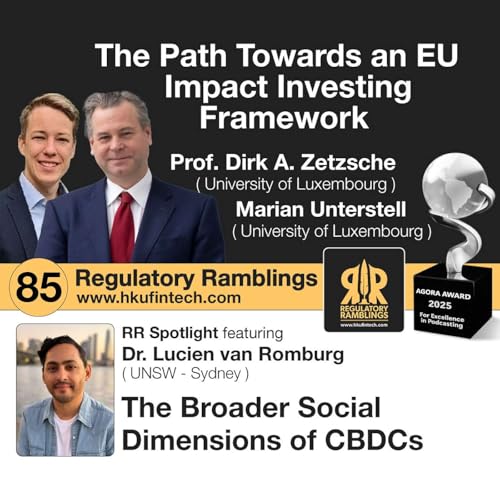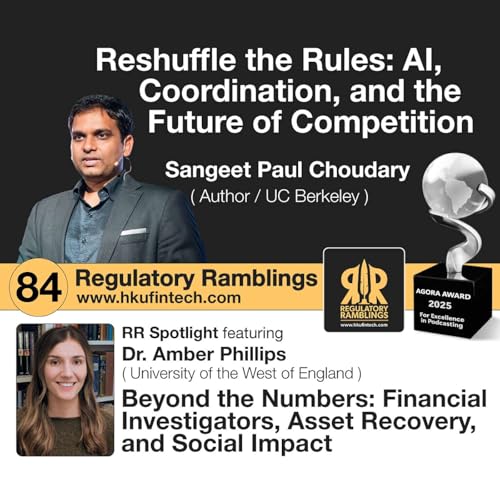
Regulatory Ramblings
Failed to add items
Sorry, we are unable to add the item because your shopping cart is already at capacity.
Add to basket failed.
Please try again later
Add to Wish List failed.
Please try again later
Remove from Wish List failed.
Please try again later
Follow podcast failed
Unfollow podcast failed
-
Narrated by:
About this listen
Welcome to Regulatory Ramblings, a podcast from the HKU FinTech team at The University of Hong Kong on the intersection of all things pertaining to finance, technology, law and regulation. Hosted by The Reg/Tech Lab, HKU-Standard Chartered FinTech Academy, Asia Global Institute and the HKU-edX Professional Certificate in FinTech, with support from the HKU Faculty of Law. Join us as we hear from luminaries across multiple fields and professions as they share their candid thoughts in a stress-free environment - rather than the soundbites one typically hears from the mainstream press.
© 2026 HKU FinTech
Episodes
-
 1 hr and 11 mins
1 hr and 11 minsFailed to add items
Sorry, we are unable to add the item because your shopping cart is already at capacity.Add to basket failed.
Please try again laterAdd to Wish List failed.
Please try again laterRemove from Wish List failed.
Please try again laterFollow podcast failed
Unfollow podcast failed
-
 1 hr and 19 mins
1 hr and 19 minsFailed to add items
Sorry, we are unable to add the item because your shopping cart is already at capacity.Add to basket failed.
Please try again laterAdd to Wish List failed.
Please try again laterRemove from Wish List failed.
Please try again laterFollow podcast failed
Unfollow podcast failed
-
 Nov 26 202554 mins
Nov 26 202554 minsFailed to add items
Sorry, we are unable to add the item because your shopping cart is already at capacity.Add to basket failed.
Please try again laterAdd to Wish List failed.
Please try again laterRemove from Wish List failed.
Please try again laterFollow podcast failed
Unfollow podcast failed
No reviews yet
In the spirit of reconciliation, Audible acknowledges the Traditional Custodians of country throughout Australia and their connections to land, sea and community. We pay our respect to their elders past and present and extend that respect to all Aboriginal and Torres Strait Islander peoples today.


